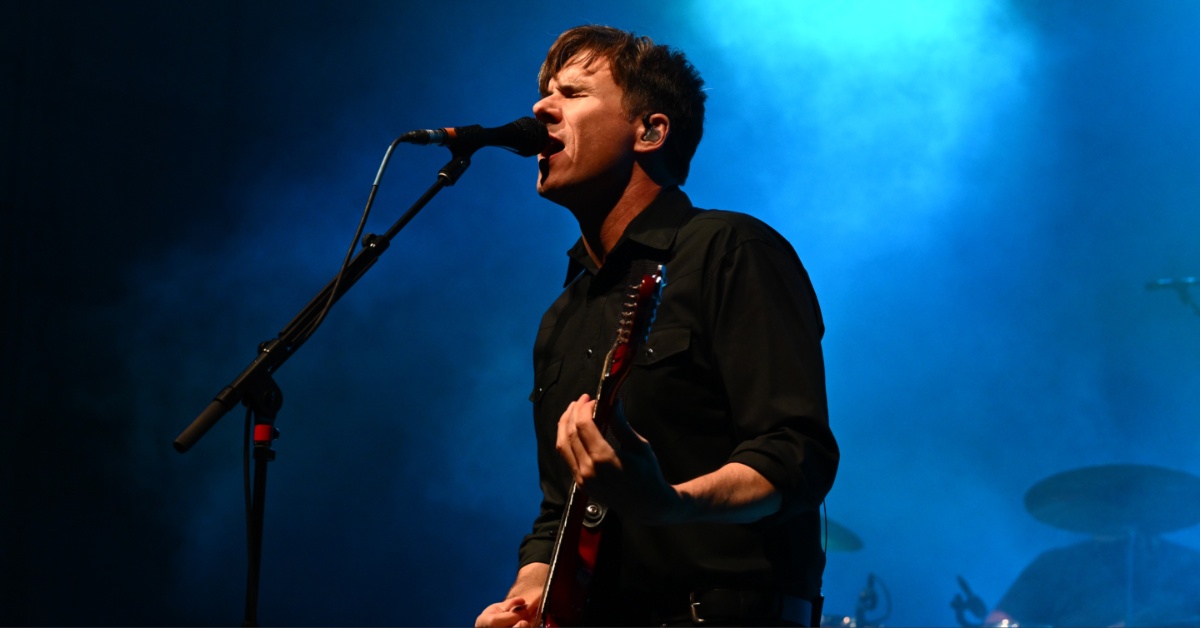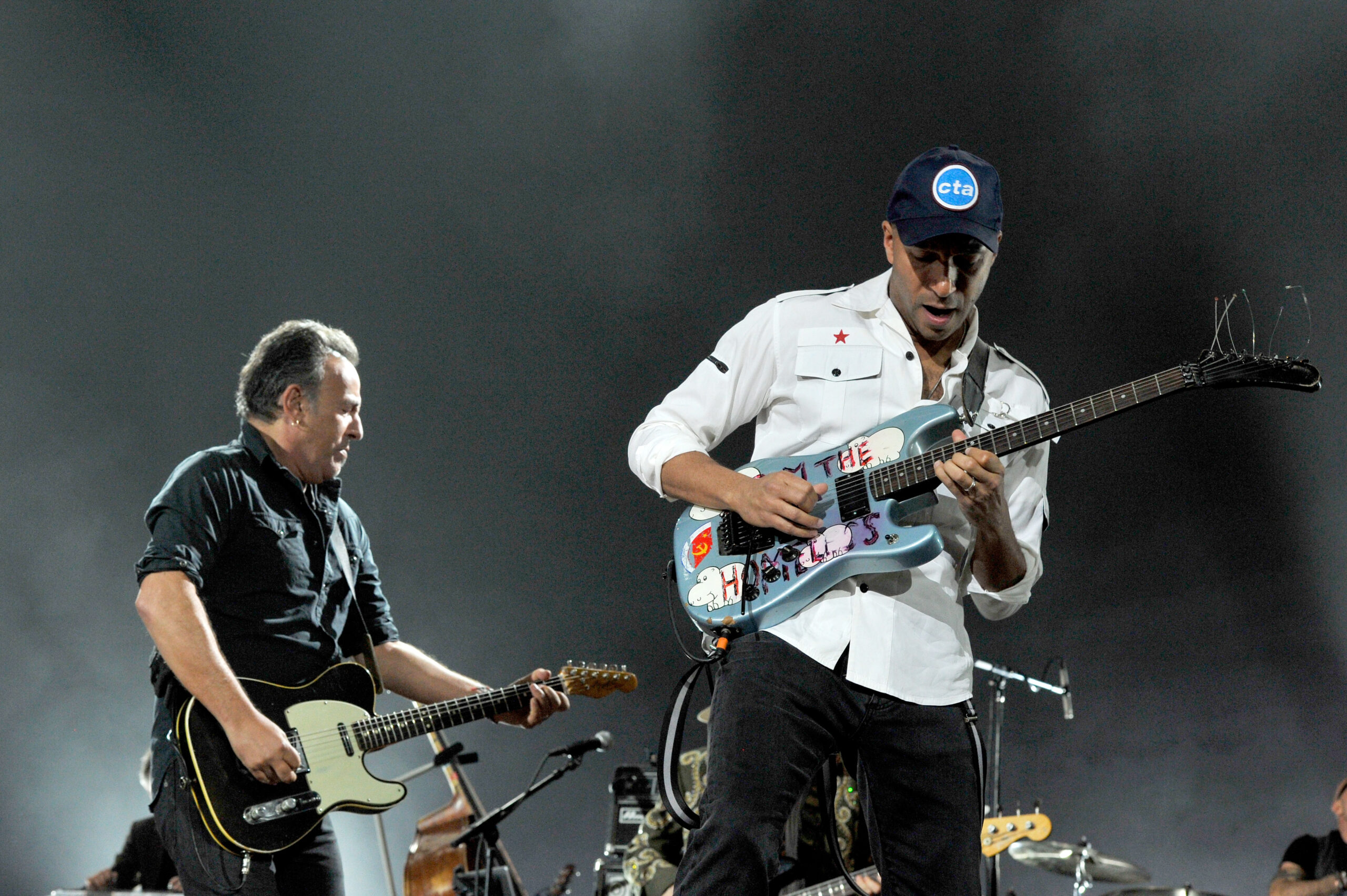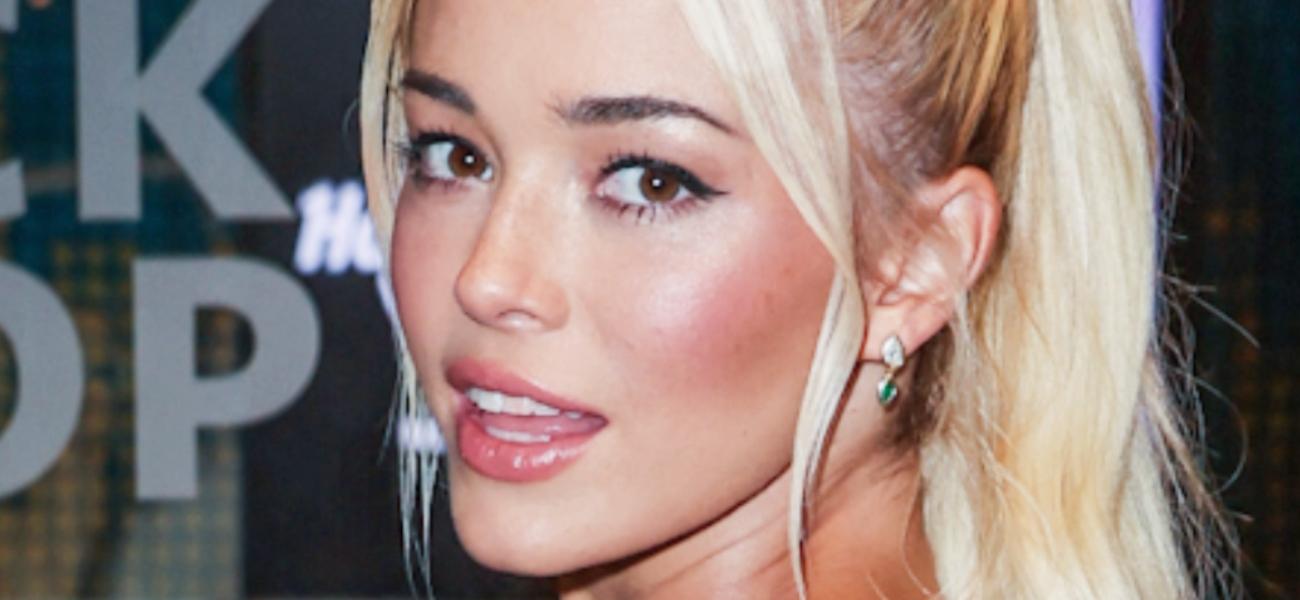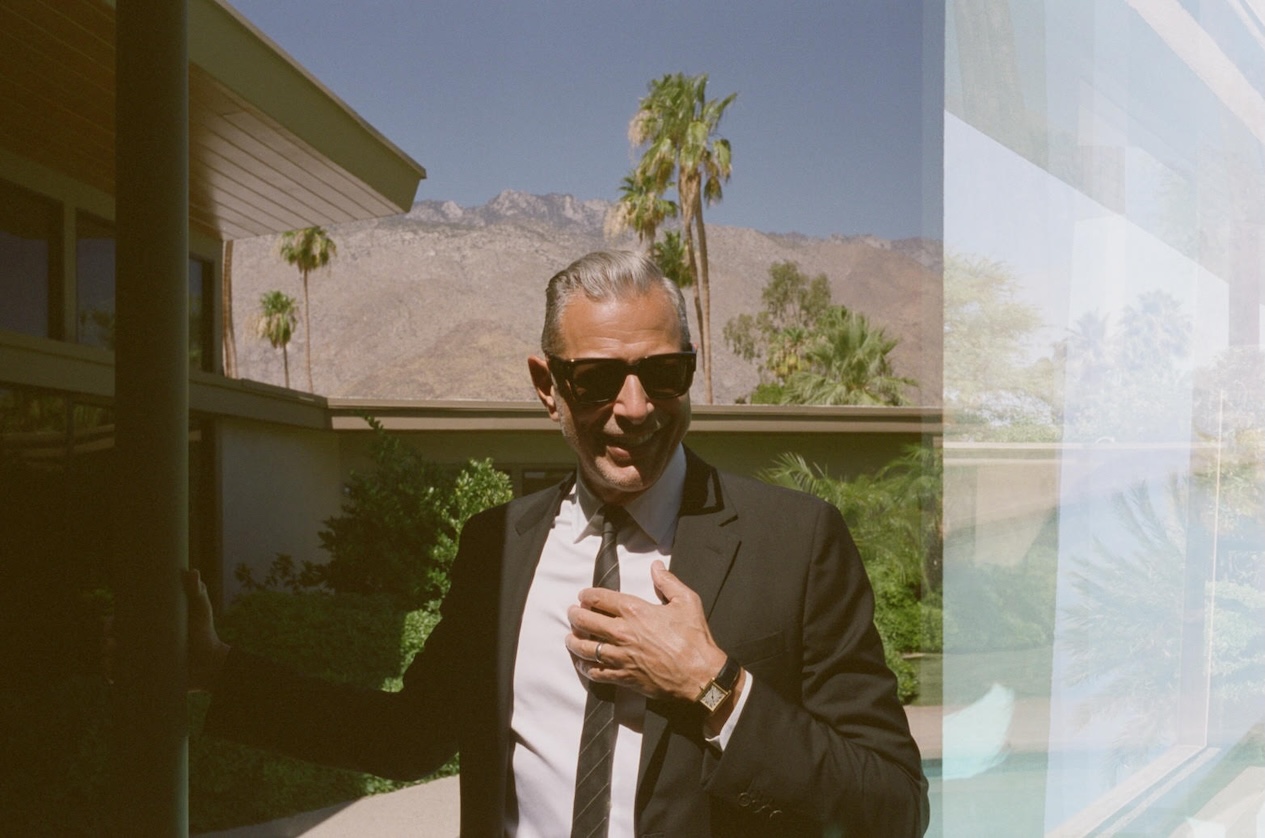
Jeff Goldblum is not your typical song and dance man. He’s still best known as an actor, playing roles both quirky and intelligent, as leading man or eccentric supporting player, in anything from serious dramas to popcorn epics like Jurassic Park and Independence Day.
But when he’s away from the cameras, he loves to sit at the piano and play some jazz.
More from Spin:
Olivia Rodrigo Goes ‘House’ Shopping With David Byrne
Kevin Parker Spins New Tame Impala Song In Barcelona
5 Albums I Can’t Live Without: Luke Pritchard of the Kooks
In last year’s Wicked, he had a rare part that brought together multiple sides of his creative life, from theatrical to musical. In the film, he is the Wizard of Oz, at various points charming and wise, malevolent and insecure. In November, that story continues in the sequel Wicked: For Good, with more songs, tap dances, witches, and flying monkeys.
The actor has also just released his fourth album as a recording artist, Still Blooming, credited to Jeff Goldblum & the Mildred Snitzer Orchestra. It’s a collection of jazz tracks of various styles, with such guest singers as Scarlett Johansson (“The Best Is Yet to Come”) and his Wicked co-stars, singer-actresses Ariana Grande (“I Don’t Know Why (I Just Do)”) and Cynthia Erivo (“We’ll Meet Again”).
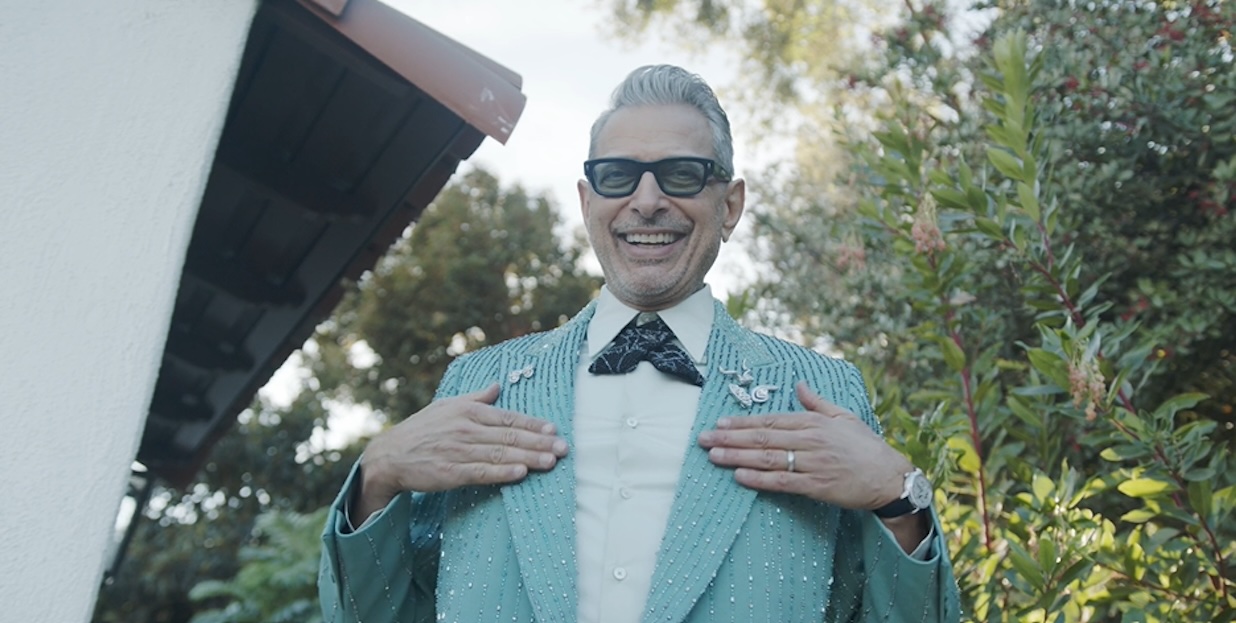
While his recording career is relatively new, he’s been a serious musician most of his life, first as an excited teen playing live gigs in Pittsburgh, and then, after he was an established film actor, for many years playing weekly in a Hollywood nightclub when in town between film roles. He’s currently on a tour with his band of seasoned musicians in the U.S. and across the Atlantic.
“I’m getting more passionate about it. And yes, I do take it seriously. I practiced today and I start my day with about an hour of work, and it changes my day, and it enhances my life—thanks to Shirley Goldblum once again, and Harold Goldblum,” he says, with a nod to his parents, hours before his concert at New York’s Bowery Ballroom. “They really did a good job.”
He’s speaking from the Manhattan offices of Verve Records, a historically important label and home to essential jazz classics by the likes of Charlie Parker, Billie Holiday, and Roland Kirk, and on up to such recently acclaimed artists as Jon Batiste. It also happens to be near Columbus Circle, where, as a young actor, he auditioned for a small part as “Freak #1” in the 1974 vigilante thriller Death Wish. It was his first audition and he got the part.
With his entirely believable turn as a “freak,” and the criminal act that sets the entire Charles Bronson revenge series in motion, his movie career had begun. Several years before his career-making role in The Fly (and several Wes Anderson films), Death Wish was just the first in a series of tiny parts in ‘70s classics like Nashville and California Split, and his memorable one-line appearance in Annie Hall as a party-goer with a problem, nervously telling someone on the phone, “I forgot my mantra.” Things only accelerated from there.
Did small parts like your first in Death Wish lead directly to where you are now, or were they just keeping you alive back then?
Oh, you’re philosophical. I can tell already. I think every strand of the tapestry has been necessary to bring me to this point. It was the first movie I ever auditioned for, and I got it. And other miraculous things happened early on. And it was good that they were small things. I was thrilled about doing anything, because [acting teacher] Sandy Meisner said it takes 20 years to even call yourself an actor after working continually, and then a potential upward progress forever until your last breath. So yes, that contributed, and then other miracles happened like that. And one thing led to another is the title of the story.
Verve Records has a pretty incredible history. It must be great for you as a musician to now be part of it.
It’s in the same file as what we were just talking about. It was acting that I always had my heart set on to have a career at. I don’t believe in astrology, but what cosmic mystery resulted in me—with my passion, but non-careerist adventure musically—that I should wind up in the most prestigious, beautiful place with the cream of the crop people? Color me grateful because that’s what I am.
While your focus was on acting, you obviously take music extremely seriously, and have been doing it for decades. What led you down this particular path?
It was a parallel passion, but not one that I had my career hopes around. My parents gave us four kids music lessons, like good parents. We went to museums and had dance lessons and this and that, and went to a camp that I liked a lot. I was an undisciplined student. But when [first piano teacher] Tommy Emmel gave me a jazz piece or two, I was like, “I love this.” There was something in me that just—the syncopation and the different kinds of chords—I really dug. And so I sat and practiced until I got a little better. And then I started to call cocktail lounges around Pittsburgh when I was 15. It tickled my parents. They drove me there. And that’s how that started.
My acting kind of kept developing. I snuck it into a couple of movies, like Earth Girls Are Easy and The Fly, where my character, at my suggestion, played a little piano. And then about 30 years ago, [actor] Peter Weller, with whom I had done Buckaroo Banzai, is a trumpeter. We would get together and we’d run through things. And he said, “Hey, somebody told me”—actually, it was Miles Davis, whom he knew—“you and Jeff should get together with other musicians and have a gig, even just once a week if you’re not acting. And you’ll get better and it’ll be fun.” We started to do that.
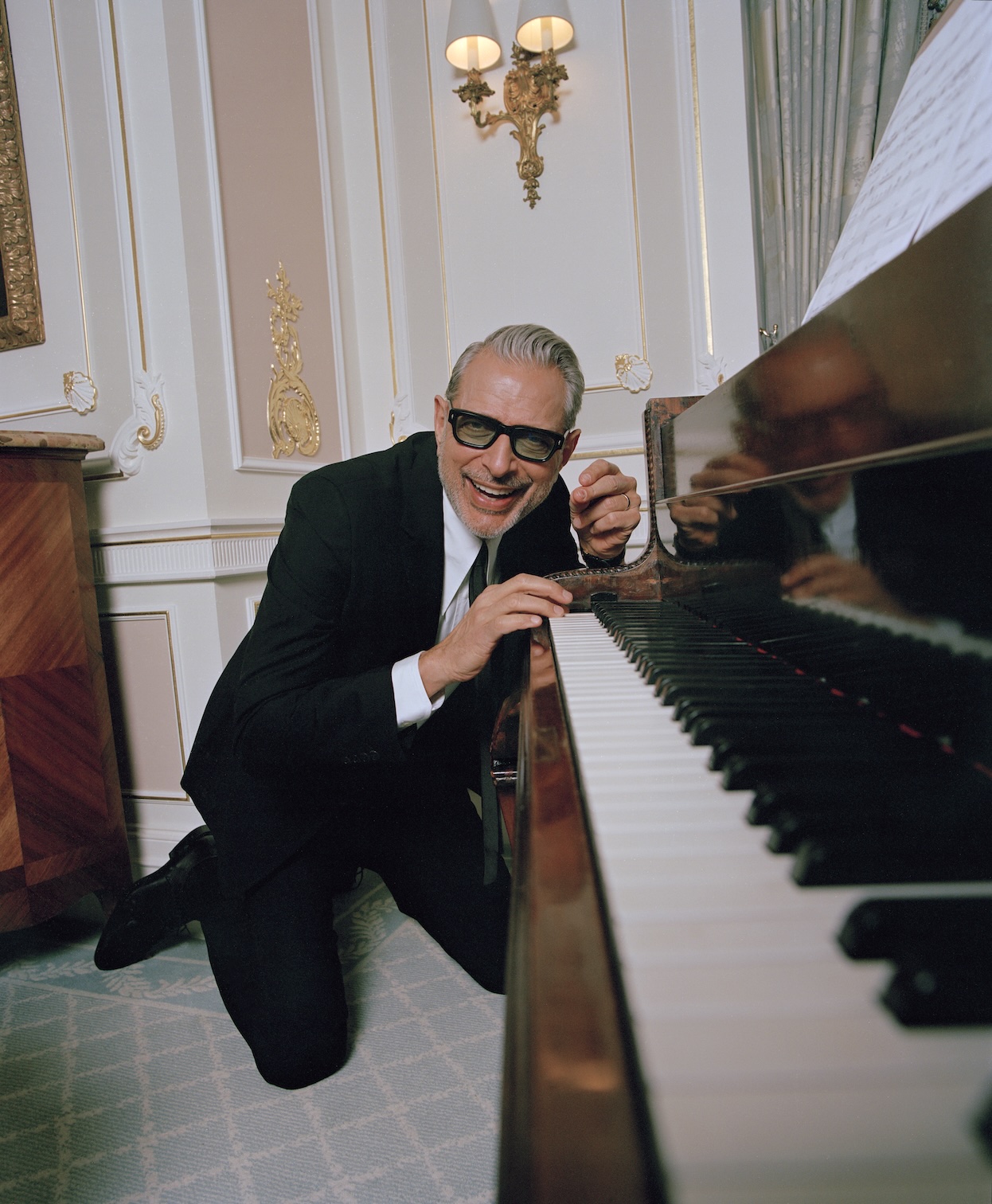
Who are your jazz heroes?
Well, this band keeps turning me on to the albums that I should really be listening to, some of which are still new to me. But, here in the middle of my journey, I sure like Thelonious Monk. I like Oscar Peterson. I like Keith Jarrett. I like Erroll Garner, uniquely joyous and brilliant. Bill Evans, Bud Powell, a lot of people.
You say your current band is much more sophisticated now than when you started playing shows regularly in Hollywood. What exactly are you aiming for with this band?
How can I describe it? Well, we play what could be described as classics from the American songbook and jazz history. We’ve got things that jazz aficionados and connoisseurs and sophisticates may thrill to. People show up at our shows, and maybe buy the records who are not jazz, jazz, jazz people. Maybe they’ve seen me in a movie or this or that. And maybe they’ve decided, “Oh, I don’t really like jazz. It’s a lot of notes and it’s self-indulgent. It goes on for too long.” All our songs I think are very enjoyable and accessible, let’s call it, but special.
We do Thelonious Monk, you know, we dare to do that. But I love what we do with that. And then, oh, yes, I sing Bud Powell’s “Bouncing With Bud” on this album, a quintessential bebop tune. And I think I’m getting better every day at all these things.
Ariana Grande sings on the new album’s opening song, “I Don’t Know Why (I Just Do).”
When we asked these singers, which happened just randomly on the set of Wicked when I got Cynthia Erivo and Ariana Grande, and we figured out what they wanted to do, that determined a little bit of our choices too. Scarlett Johansson, she wanted to do “The Best Is Yet to Come,” and she even had the idea of a bossa nova treatment.
Ariana has a lot of experience making hit records. She has a great little laugh at the end of her song.
Isn’t that charming? She’s really a genius. She’s so good in Wicked, as is Cynthia Erivo. They both are so impressive. Wonderful actors, spontaneous. They really have their instruments in their possession musically, theatrically. And they can then be free and authentic. And I think that laugh must have been part of how she felt.
Do you like recruiting people from your film life into your music world?
Well, I have no strategy. It just kind of happened that way. For instance, with Scarlett Johansson, I was at the premiere of Asteroid City. I’d done a couple of Wes Anderson movies with her. And we just got to talking at the table. I don’t go into any of these things saying, “How am I going to poach one part of my life and use it for another?” No, it just kind of happens. Although now we do have wish lists.
Let me see. Hey, oh, Lana Del Rey! I ran into Lana Del Rey at one of these events, and we had a nice chat. Yes, she expressed interest too. I can’t say what’s gonna happen, but that would be glorious. Charlie XCX, I had a nice exchange with, we talked about it a little bit. Jacob Collier, I love. That would be peachy. Let’s see—Lady Gaga. I was listening to her again with Tony Bennett and oh boy, I’m crazy about her. Anyway, those are some of our wish lists, but maybe there’s a whole world that may open up to us. I’m excited about it.
So you’re not going to get Sam Neill on your next record?
I wish. Maybe you’ve seen some of those where we set up a camera, when we were in the bubble in the studio where we shot the last Jurassic movie. He and I made a lot of ukulele/piano duets. I don’t know if any of them are presentable to the general public, but we like making that. But no, I don’t get my sticky fingers on the call sheet at any time. No, no, no. I stick to the job at hand. My plate is full.
What do you think about the long life that Jurassic Park has ended up having, with so many sequels since the first film you were part of?
Well, that’s the story of Hollywood and the marketplace, whereby something popular will find continuation for one reason or another. But that original material, I must say, Michael Crichton and the original by Steven Spielberg—the two movies that I did are substantially delicious. And it’s not curious that they’ve also inspired further exploration. I’ve had a good time on a couple others that I’ve done recently, and now they’ve got Scarlett Johansson and Jonathan Bailey from Wicked. I’ll be first in line for that. And dinosaurs, people seem to like dinosaurs.
You got to be in the Wicked movie as the Wizard of Oz, which blended different talents that you have. Do you identify with the showmanship of the Wizard?
I’ve always been interested in all the auxiliary aspects of theatrical training, which is movement and dance and voice and this and that. And then I saw the original production of Wicked. [Composer] Stephen Schwartz, he went to Carnegie Mellon University too. He had done Godspell and this and that. And then we crossed paths actually during Prince of Egypt, because I had a little part in that, and he had done that music, of course. And then 20 years ago, I just happened to go to the original cast of Wicked and saw Idina Menzel and Kristin Chenoweth, went backstage and was crying my eyes out at it.
It got me in the best way because The Wizard of Oz has always been in my bones and blood and nervous system and heart. It was a thrill to be involved when [producer] Marc Platt and [director] Jon M. Chu—who is the genius behind the quality of this movie—got me in a room and said, “Hey, you wanna do this?” That was a total thrill. And then it sort of rang the bell and was well received and popular and seemed to satisfy the fervent religious fans of that show. I hope the second one does the same.
What’s it like to be part of something that just explodes into the pop culture zeitgeist?
Really fun. I’ve done a lot of things and I was never particularly focused on that, as the business was less focused in that direction. Nobody knew about Rotten Tomatoes or the first weekend’s grosses or the competition to make the most money or anything like that. No, it was an artistic so-called adventure, and that was its own reward. But then, unlike some terrific actors who have big careers, I was in a couple of movies that really did very well.
This Jurassic Park movie and Independence Day did very well. And I was in that Thor: Ragnarok movie that did very well. And The Fly rang the bell of the year it came out, ’86. I’m glad to still do things like Kaos on Netflix and play that Zeus character and do things that feel chewy and nutritious and artful. But working on Wicked … That character is a fun part of that show. But just like the show, there are other aspects to it besides its crowd-pleasing ways that are worthy of exploration and serious thought. He’s a complicated fella and some dark difficult things in his character, of course. And people are very enthusiastic—I go around the street here and … it’s just fun to see the brightness in their eyes and their bushy tailed enthusiasm and say, “Oh, it’s the Wizard!”
To see our running list of the top 100 greatest rock stars of all time, click here.



